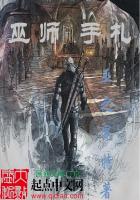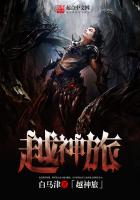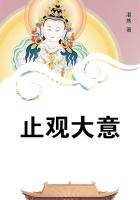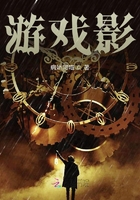In another portion of the square, provisions and stock, alive and dead, were being offered for sale, for the most part by natives of the country. Here were piles of vegetables and fruits grown in the gardens, sacks of various sorts of grain, bundles of green forage from the irrigated lands without the walls, calabashes full of curdled milk, thick native beer and trusses of reed for thatching. Here again were oxen, mules and asses, or great bucks such as we now know as eland or kudoo, carried in on rough litters of boughs to be disposed of by parties of savage huntsmen who had shot them with arrows or trapped them in pitfalls. Every Eastern tribe and nation seemed to be represented in the motley crowd. Yonder stalked savages, naked except for their girdles, and armed with huge spears, who gazed with bewilderment on the wonders of this mart of the white man; there moved grave, long-bearded Arab merchants or Ph?nicians in their pointed caps, or bare-headed white-robed Egyptians, or half-bred mercenaries clad in mail. Their variety was without end, while from them came a very babel of different tongues as they cried their wares, bargained and quarrelled.
Aziel gazed at this novel sight with interest, till, as he was beginning to weary of it, the crowd parted to right and left, leaving a clear lane across the market-place to the narrow gate of the temple.
Along this lane advanced a procession of the priests of El clad in red robes, with tall red caps upon their heads, beneath which their straight hair hung down to their shoulders. In their hands were gilded rods, and round their necks hung golden chains, to which were attached emblems of the god they worshipped. They walked two-and-two to the number of fifty, chanting a melancholy dirge, one hand of each priest resting upon his fellow's shoulder, and as they passed, with the exception of certain Jews, all the spectators uncovered, while some of the more pious of them even fell upon their knees.
After the priests came a second procession, that of the priestesses of Baaltis. These women, who numbered at least a hundred, were clad in white, and wore upon their heads a gauze-like veil that fell to the knees, and was held in place by a golden fillet surmounted with the symbol of a crescent moon. Instead of the golden rods, however, each of them held in her left hand a growing stalk of maize, from the sheathed cob of which hung the bright tassel of its bloom. On her right wrist, moreover, a milk-white dove was fastened by a wire, both corn and dove being tokens of that fertility which, under various guises, was the real object of worship of these people. The sight of these white-veiled women about whose crescent-decked brows the doves fluttered, wildly striving to be free, was very strange and beautiful as they advanced also singing a low and melancholy chant. Aziel searched their faces with his eyes while they passed slowly towards him, and presently his heart bounded, for there among them, clasping the dove she bore to her breast, as though to still its frightened strugglings, was the Lady Elissa. He noticed, too, that as she went beneath the palace walls, she glanced at the window-place of his chamber, but without seeing him for he was seated in the shadow.
Presently the long line of priestesses, followed by hundreds of worshippers, had vanished through the tortuous and narrow entrance of the temple, and Aziel leaned back to think.














